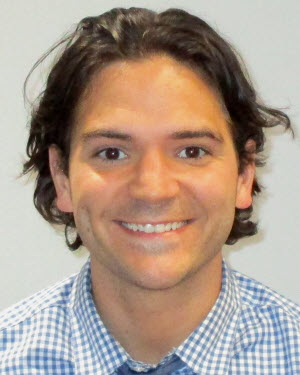
Mimics of High-Grade Urothelial Carcinoma in Urinary Cytology
Patrick McIntire, MD |
With widespread implementation of The Paris System for Reporting Urinary Cytology, much focus has shifted to diagnosing high-grade urothelial carcinoma (HGUC). Clinicians may proceed with procedures (i.e. cystectomy and/or nephroureterectomy), which carry significant clinical ramifications, based on cytology diagnoses alone. Thus, a in-depth review of benign mimics of HGUC is prudent. This presentation will cover common and rare mimics that cytopathologists encounter in routine practice.
Target Audience
This educational activity is designed for pathologists, cytopathologists, cytotechnologists, students and other members of the cytopathology community.
Learning Objectives
- Review the features of high-grade urothelial carcinoma in urinary cytology specimens
- Review common and rare benign mimics of high-grade urothelial carcinoma
- Be able to describe the cytomorphologic similarities and differences between the two
Patrick McIntire, MD
Associate Staff Pathologist
Cleveland Clinic
Pathology and Laboratory Medicine Institute
Cleveland, Ohio
The presenter has no conflicts of interest or financial relationships to disclose.
Continuing Medical Education (CME) Statement
The American Society of Cytopathology is accredited by the Accreditation Council for Continuing Medical Education to provide continuing medical education for physicians. The American Society of Cytopathology designates this enduring educational activity for a maximum of 2.0 AMA PRA Category 1 Credits™. Physicians should only claim credit commensurate with the extent of their participation in the activity.
American Board of Pathology Maintenance of Certification (CC)
This product can help fulfill the CME requirements and Self-Assessment Modules (SAMs) mandated by the American Board of Pathology Continuing Certification (CC) process. Earn up to 2.0 SAM Credit Hours.
Continuing Medical Laboratory Education (CMLE)
The ASC designates this activity for a maximum of 2.0 Continuing Medical Laboratory Education (CMLE) credit hours for non-physicians. The CMLE credit hours meet the continuing education requirements for the ASCP Board of Registry Certification Maintenance Program. Participants should claim only the credit commensurate with the extent of their participation in the activity.
Cytotechnologists with Licenses in Florida and California
This program is approved for 2 continuing education credits in the State of Florida and 1 in the State of California. The credit on each link is good for three years from the live presentation date.
Available Credit
- 2.00 AMA PRA Category 1 Credit™
- 1.00 California Credits
- 2.00 CMLE
- 2.00 Florida Credits
- 2.00 MOC II
- 2.00 Participant

 Facebook
Facebook X
X LinkedIn
LinkedIn Forward
Forward